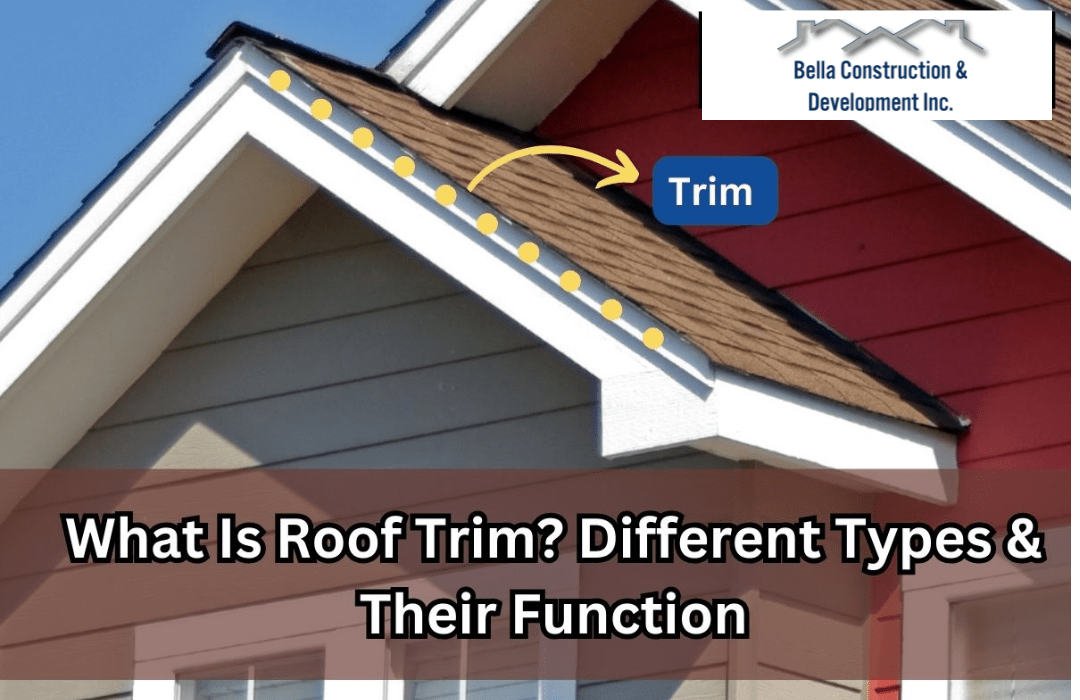Roof trims play a crucial role in both the aesthetics and functionality of your home. They provide a finished look and protect various parts of the roof from weather damage. Here’s a closer look at the different types of roof trim and their purposes:
Gable Trim
Gable trim is used on the vertical edges of the roof where two sloping sides meet to form a gable. This trim covers the seams between the roof and the gable end, providing a neat finish and protecting against water infiltration, wind, and pests. It enhances the architectural appeal of your home and can be customized in various styles and colors.
Rake Trim
Rake trim runs along the sloping edges of the roof, extending from the eaves to the ridge. It serves to cover and protect the edge of the roof deck and the roofing material. Rake trim prevents water from seeping under the roof, which can lead to structural damage. It also helps secure the roofing material, adding to the durability of the roof.
Eave Trim
Eave trim is installed at the roof’s lower edge, where the roof meets the exterior walls. This trim directs water away from the fascia and into the gutters, preventing water damage to the roof deck and the walls. Eave trim is essential for effective water management and can also add to the roof’s visual appeal.
Fascia
Fascia is the horizontal trim that runs along the edge of the roof, covering the ends of the roof rafters. It provides a finished look and supports the lower edge of the bottom row of roof tiles or shingles. Fascia also helps in holding the gutter system in place, making it a critical component for proper water drainage.
Soffit
Soffit is the trim located under the eaves, bridging the gap between the roof edge and the exterior wall. It often features vents that allow air to flow into the attic, promoting ventilation and preventing moisture buildup. Properly ventilated soffits help maintain the health of the roof structure.
In summary, each type of roof trim serves a specific purpose in protecting your home from the elements while contributing to its overall aesthetic. By understanding these different trims, you can ensure that your roof remains durable, functional, and visually appealing.

